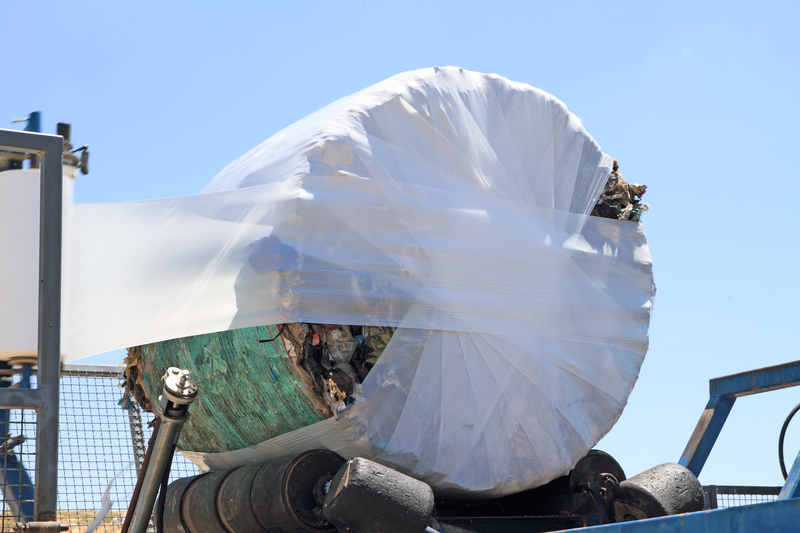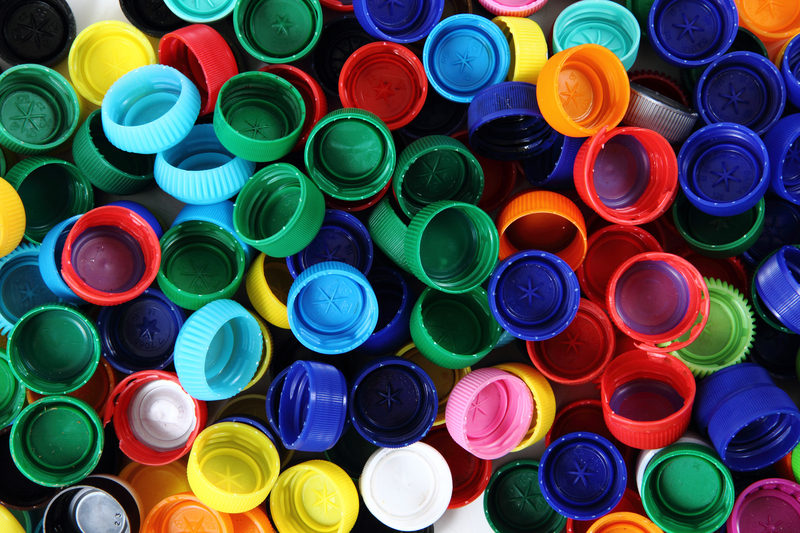The Journey of Waste Management Innovations
Efficient waste management has taken center stage as the world grapples with growing urbanization, population surges, and the mounting environmental pressures they bring. From basic landfill techniques to advanced recycling, technology-driven solutions, and circular economy principles, the journey of waste management innovations is a remarkable testament to human ingenuity and adaptability. In this comprehensive guide, we'll explore the evolution, current breakthroughs, and future prospects in the field of waste management innovation, transforming how societies reduce, reuse, and recycle for a better tomorrow.
The Origins: Early Waste Management Practices
Waste management is as ancient as civilization itself. Archaeological evidence suggests that early communities devised rudimentary ways to manage refuse, mostly by burying or burning it. Here's a closer look at how it all began:
- Open dumping: The most primitive form, involving the disposal of solid waste in open pits or vacant land.
- Incineration: Burning waste to reduce its volume, practiced by ancient Greeks and Romans.
- Composting: Reusing organic waste for agriculture, a practice dating back thousands of years in Asia and Europe.
While early methods helped reduce odors and infectious disease, they did little to protect the environment in the long term. As cities grew, so did the need for innovative waste management solutions.

Industrialization and Modern Waste Challenges
The Industrial Revolution changed everything. Urban populations ballooned, and with them, the sheer volume of waste. Traditional practices couldn't cope, giving rise to new challenges:
- Overflowing dumpsites: Rapid urban growth led to excessive amounts of unmanaged waste.
- Contamination concerns: Polluted water, air, and land from unregulated dumping and burning.
- Public health crises: Waste-borne diseases became common in crowded cities.
These problems paved the way for waste management inventions such as the creation of municipal waste collection systems, regulated disposal sites, and the first attempts at recycling and incineration plants.
The Rise of Landfills and Sanitary Disposal
By the late 19th century, sanitary landfills replaced open dumping. These landfills featured lined pits, clay caps, and systematic waste compaction to minimize leachate and prevent environmental harm. While a significant improvement, landfills still posed challenges, including methane emissions and land use.
Soon, the focus shifted towards reducing the need for landfills altogether, leading to a flurry of waste management innovations in the 20th century.
Recycling: A Turning Point in Waste Management
Recycling marked a transformative phase in the journey of waste management technology. The idea was simple: recover valuable materials from waste streams and reintroduce them into the production cycle. Key milestones included:
- The bottle bill movement: Deposit-return systems encouraged glass and aluminum recycling in the 1970s and 1980s.
- Curbside recycling programs: These programs, first launched in North America and Europe, made recycling convenient for households.
- Material recovery facilities (MRFs): Facilities designed specifically for sorting, cleaning, and processing recyclables.
Recycling significantly reduced pressure on landfills and the environment. It also sparked a wave of green job creation, resource conservation, and energy savings worldwide. This innovation remains central to modern waste management systems.
Technology-Driven Waste Management Innovations
As waste streams became more complex, so did the methods to manage them. Modern advances have introduced cutting-edge technology in waste collection, processing, and resource recovery. Some of the most impactful developments include:
Smart Waste Collection
Smart bins equipped with IoT sensors now monitor fill levels, optimizing pick-up routes and schedules. This minimizes fuel usage, labor costs, and emissions. Cities like San Francisco, Amsterdam, and Seoul have adopted smart waste systems, boosting operational efficiency and environmental performance.
- Fill level sensors help avoid unnecessary trips.
- Data analytics improve future waste management planning.
- GPS tracking streamlines fleet routes.
Automated Sorting and Processing
Advanced sorting technologies such as AI-powered robots, optical sorters, and magnetic separators can now distinguish and separate waste at high speeds and with greater accuracy. This has:
- Enhanced recovery rates for recyclables like plastics, metals, and paper.
- Reduced labor costs and workplace hazards.
- Allowed for more consistent quality in recycled materials.
Waste-to-Energy (WTE) Technologies
Waste-to-energy strategies convert non-recyclable waste into electricity, heat, or fuel. Modern WTE plants utilize incineration, gasification, and anaerobic digestion, helping cities like Stockholm and Singapore generate clean energy while managing waste responsibly.
- Incineration with energy recovery reduces landfill use and generates power.
- Biogas plants utilize organic waste for renewable energy.
Digital Waste Management Platforms
Cloud-based platforms are revolutionizing how municipalities, businesses, and consumers handle waste. These digital tools help track, analyze, and optimize the entire waste lifecycle:
- Real-time tracking of waste streams and volumes.
- Automated reporting and regulatory compliance.
- Data-sharing to encourage transparency and accountability.
Biological Innovations in Waste Management
Nature-inspired solutions are at the forefront of modern waste management. These biological approaches look to enzymes, microbes, and plants to break down, transform, or absorb waste materials safely and sustainably.
Composting and Anaerobic Digestion
- Industrial composting turns food and yard waste into nutrient-rich soil for agriculture.
- Anaerobic digestion uses microbes to produce biogas and organic fertilizer from organic waste.
- Community-scale compost initiatives close the loop and reduce landfill dependency.
Bioremediation
Special strains of bacteria and fungi now help clean up hazardous and electronic waste. Bioremediation reduces toxins and enables the safe reclamation of land previously considered unusable.
Bioplastics and Biodegradable Packaging
- Innovations in bioplastics offer compostable alternatives to traditional plastics.
- Edible packaging solutions reduce single-use waste in the food industry.
The Zero Waste Movement and the Circular Economy
One of the most forward-thinking waste management innovations is the shift towards zero waste and a circular economy. These concepts promote designing products and systems to eliminate waste altogether and keep resources in use for as long as possible.
Design for Reuse and Recycling
Manufacturers are increasingly creating products that can be disassembled and recycled at the end of their lifecycle. Examples include modular electronics, refillable containers, and standardized packaging.
Extended Producer Responsibility (EPR)
EPR policies hold manufacturers accountable for the entire lifecycle of their products, incentivizing the design of less wasteful, recyclable, or reusable goods. This trend is reshaping waste management strategies across Europe, Asia, and beyond.
Global Success Stories: Waste Management Innovation in Action
Countries and cities worldwide are demonstrating the transformative power of new waste management approaches:
- Sweden recycles nearly 99% of its household waste and imports refuse to power WTE plants.
- Japan implements anaerobic digestion for food waste and is a leader in e-waste recycling.
- San Francisco has set a target for zero waste by 2030, utilizing extensive composting, recycling, and community education programs.
- Rwanda banned plastic bags and adopted city-wide street cleaning innovations, earning it the title of one of Africa's cleanest countries.
Challenges and Barriers to Waste Management Innovation
Despite incredible progress, several hurdles continue to slow the adoption of new waste management techniques globally:
- Infrastructure gaps, especially in developing countries lacking collection and processing facilities.
- Cost and investment challenges for deploying advanced technologies at scale.
- Societal behaviors such as low recycling rates and poor waste segregation habits.
- Legislative and regulatory obstacles that prevent rapid innovation and experimentation.
Nevertheless, greater public awareness, corporate responsibility, and supportive policies are gradually paving the way forward.

Future Prospects of Waste Management Innovation
The journey of waste management innovations is far from over. With rapid urbanization and changing consumption patterns, future developments must cater to even more complex and varied waste streams.
Emerging Trends to Watch
- Artificial Intelligence: Smarter sorting, data analytics, and predictive waste management.
- Decentralized waste processing: On-site composting, small-scale biogas plants, and micro-recycling centers for communities and businesses.
- Green chemistry: Safe and sustainable redesign of industrial processes to minimize hazardous waste.
- Robotics: Automated collection vehicles and advanced sorters for increased efficiency.
- Blockchain: Enhanced waste traceability, ensuring transparency in the recycling value chain.
Community and Consumer Roles
As the technologies and systems evolve, individual and community engagement remains vital. Public education, awareness campaigns, and local leadership are essential for translating innovations into lasting positive impacts on the environment and human health.
Conclusion: The Ongoing Journey of Waste Management Innovation
From humble beginnings to today's data-driven, automated, and zero-waste inspired solutions, the evolution of waste management innovation is truly inspiring. Every advancement--no matter how small--contributes to a healthier, more sustainable world for generations to come. As we face the future, embracing and investing in next-generation waste management solutions is not just an environmental imperative but an economic and ethical one as well.
Let us learn from our past, leverage modern technology, and commit to a cleaner, greener, and zero waste future together.